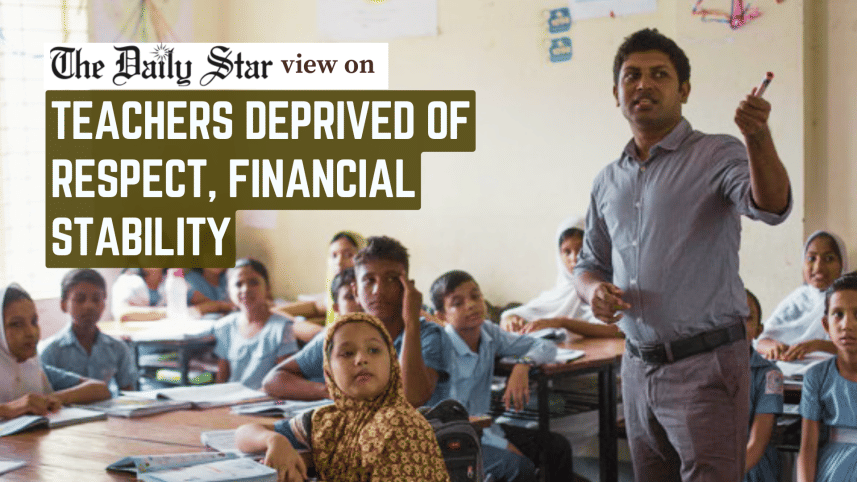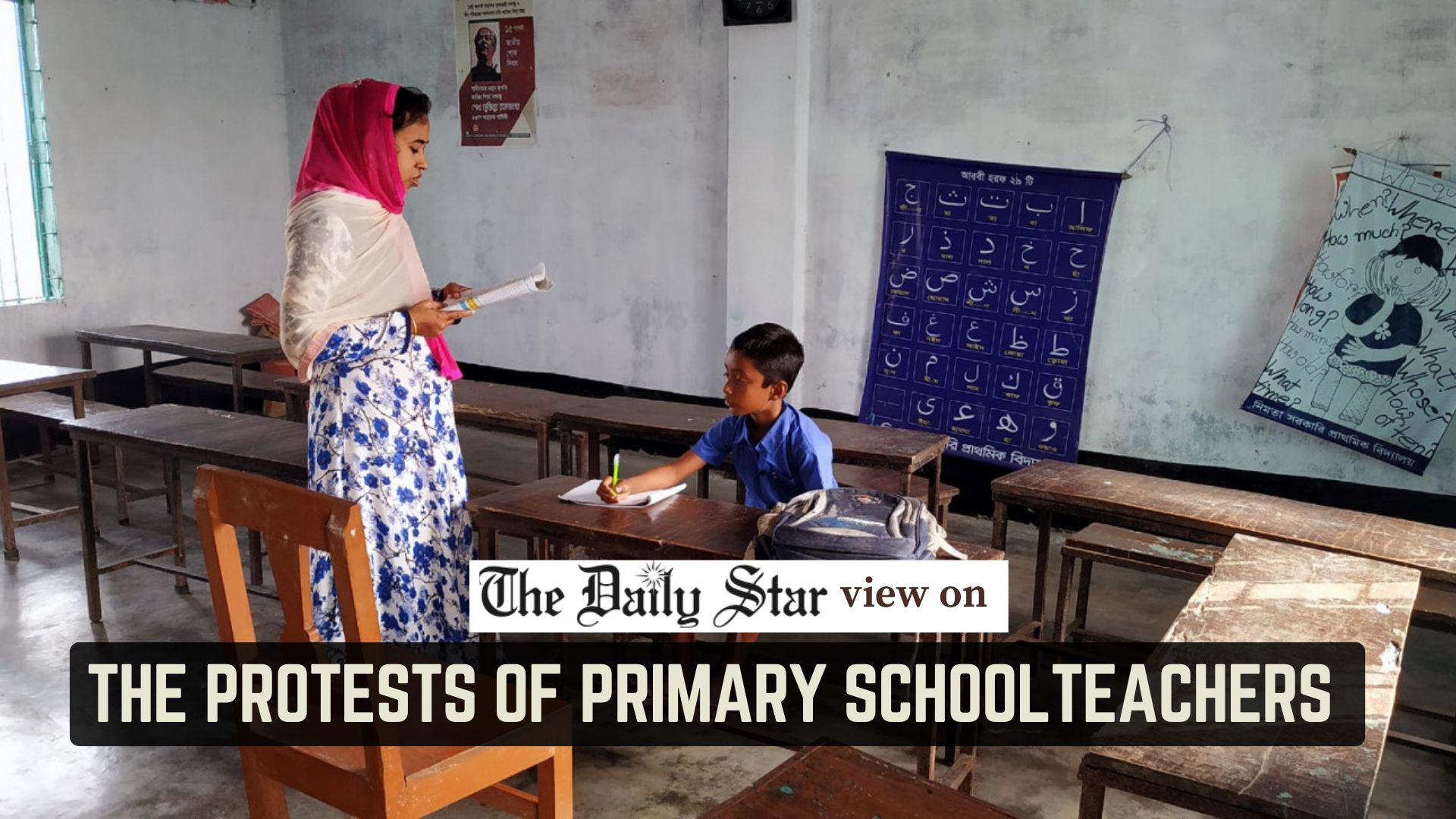Give teachers respect, financial security

Reports published on the occasion of World Teachers' Day have, unsurprisingly, portrayed a woeful state that should not be unfamiliar to erudite observers in Bangladesh. The respect and financial security afforded to our teachers remain persistently inadequate. Even government policies related to education still fail to adequately recognise the vital role teachers play in driving learning, innovation, and the advancement of both society and the nation.
The situation is especially dire at the foundational level of primary education, where many teachers have been pushed into debt traps and are not being duly respected. Current salary levels in non-government primary schools are so low that they can no longer attract talent. For example, the basic salary of an assistant teacher starts at a mere Tk 11,000, while a trained head teacher receives Tk 12,500—far below what is required to sustain a family. Contrast these figures with a 2023 study by the non-governmental thinktank Centre for Policy Dialogue (CPD) that revealed that a family of four needed Tk 18,115 per month to cover food costs in 2022.
The impact of poor pay on national educational development has been depicted in detail in the white paper on the state of Bangladesh's economy, produced by a task force led by economist Debapriya Bhattacharya and submitted to Chief Adviser Professor Muhammad Yunus on December 1, 2024. Among other things, the paper noted that teachers continue to be underpaid compared with their counterparts in other Asian countries, thereby adversely affecting the quality of education and limiting their intellectual output.
According to globally accepted norms, as reflected in the 1966 ILO/UNESCO recommendation concerning the Status of Teachers, working conditions for teachers should be such that it best promotes effective learning and enables teachers to concentrate on their professional duties. Our lack of sincerity and insufficient attention to equipping teachers with proper training, academic freedom, and a decent salary are the reasons the teaching profession has become unattractive.
Beyond financial insecurity, teachers' dignity has been severely undermined by the intrusion of partisan politics into educational management. The capture of school and college managing committees by political forces has vitiated the academic environment and, in many cases, drawn teaching staff into partisan rivalries. This has also adversely affected the accountability process. The white paper noted that the culture of political criminalisation in educational institutions has far-reaching social effects, as these teachers will continue teaching for the next 30 years or so. Sadly, we have witnessed its consequences in the form of teachers being humiliated, forced to resign, and deprived of their livelihoods. According to the paper, more than 150 teachers were forced to resign following the July uprising.
We, therefore, must recognise teachers' importance in building the nation's future and improve both their financial security and societal dignity. While the interim government may have missed an opportunity to restore teachers' status meaningfully, there is still time to initiate a realistic plan. As the country prepares for the election phase, all parties vying for power should make quality education a priority and commit to far-reaching reforms to ensure a future that can keep pace with global advancements.



 For all latest news, follow The Daily Star's Google News channel.
For all latest news, follow The Daily Star's Google News channel. 

Comments